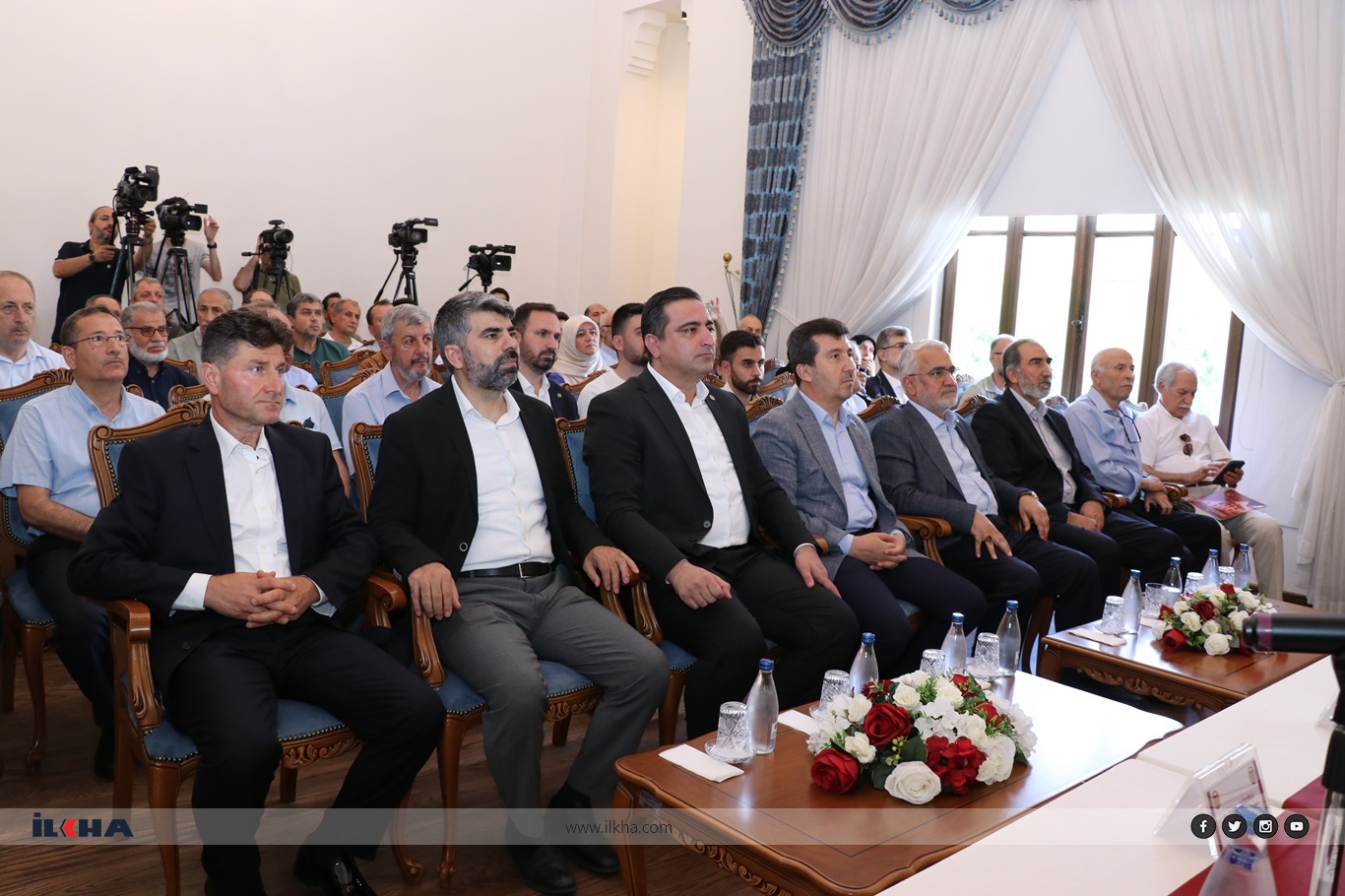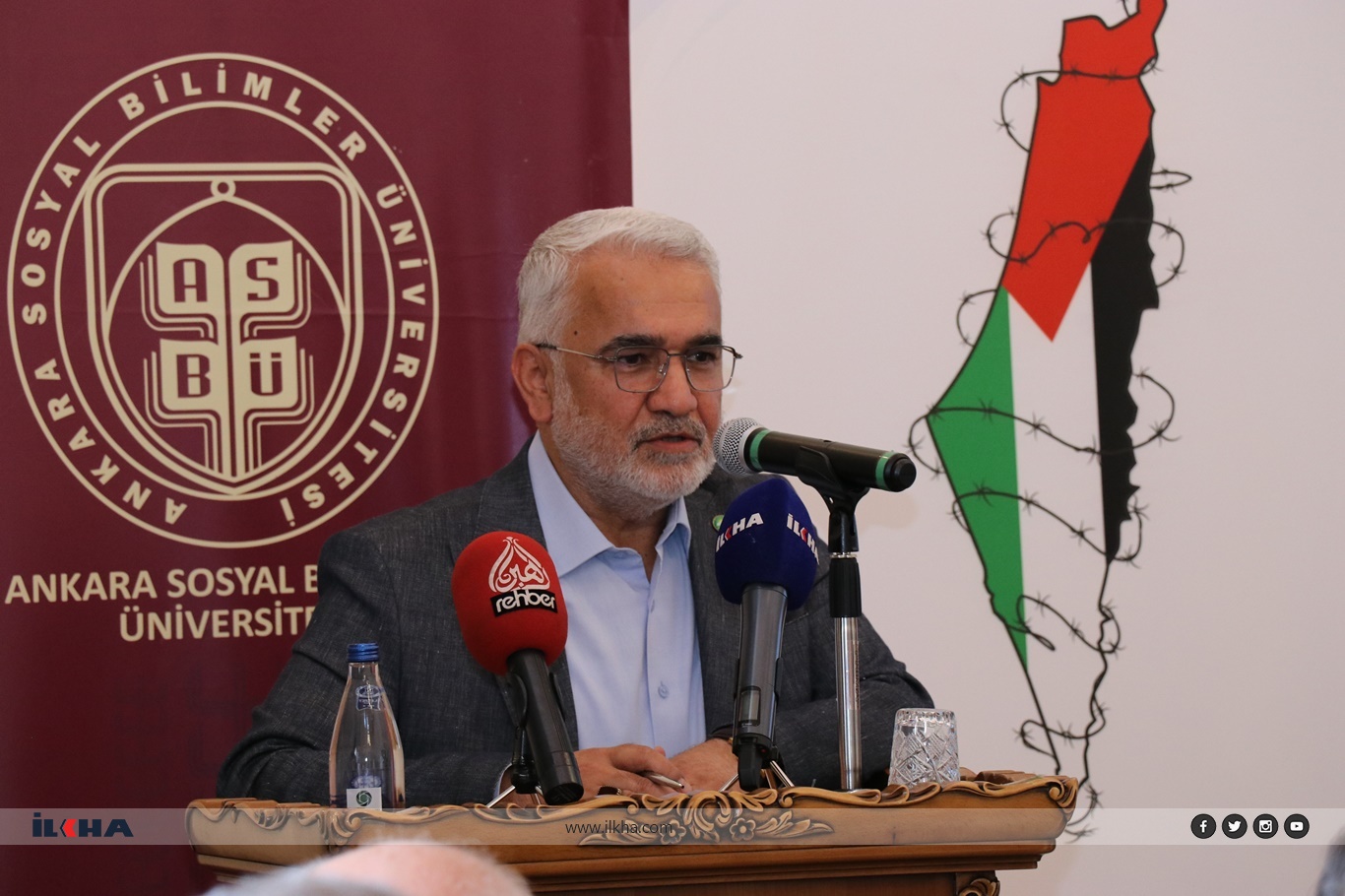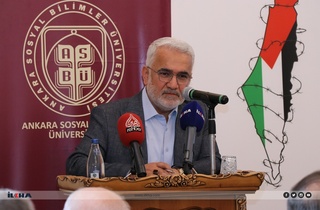Held at the ASBU Meeting Hall, the event aimed to address the ongoing genocide in Gaza, which has continued for 280 days, making it one of the most brutal genocides in human history. The panel sought to discuss the involvement of foreign terrorist fighters, particularly those holding dual citizenship with Turkish passports, who are complicit in these atrocities.
The event began with opening speeches from prominent figures. Aziz Oğuzhan Karaman, Term Spokesperson for the Ankara Palestine Solidarity Platform, ASBU Rector Prof. Dr. Musa Kazım Arıcan, and Chief Public Protector Şeref Malkoç each highlighted the grave situation in Gaza and the need for immediate legal and political action.
The panel featured a series of detailed presentations by experts in human rights, law, and journalism. Muhammet Ecevit Carti, a member of the Human Rights and Equality Board of Turkey, spoke on the "Functions of National Human Rights Institutions against Genocide," emphasizing the critical role these institutions play in preventing and addressing genocide. Dr. Onur Dur, a lecturer at ASBU Faculty of Law, explored "The Theoretical Dimension of the Crime of Genocide Committed in Gaza," delving into the legal definitions and frameworks surrounding the crime. Attorney Kaya Kartal, President of MAZLUMDER, discussed the "Trial of Dual Citizens Participating in the Genocide," focusing on the legal processes and challenges involved in prosecuting these individuals.
Av. Mustafa Eminoğlu, President of the Jerusalem and Law Platform, presented on the "Military Status and Denaturalization of Dual Citizens Participating in the Genocide," covering the legal grounds for denaturalization and its implications for military personnel. Journalist Yılmaz Bilgen shed light on the "External Logistics Network of the Gaza Genocide and Zionists with Turkish Passports," exposing the logistical support mechanisms that facilitate the ongoing violence in Gaza.
 HÜDA PAR President Zekeriya Yapıcıoğlu delivered a compelling speech about his party's proposed legislation to amend the Citizenship Law. Beginning with the emotional statement, "Our hearts have been beating in Gaza since October 7th," Yapıcıoğlu emphasized the deep moral and emotional connection to the plight of the Gazan people. He criticized the lack of effective action from both international and national authorities, arguing that prayers and protests alone are insufficient.
HÜDA PAR President Zekeriya Yapıcıoğlu delivered a compelling speech about his party's proposed legislation to amend the Citizenship Law. Beginning with the emotional statement, "Our hearts have been beating in Gaza since October 7th," Yapıcıoğlu emphasized the deep moral and emotional connection to the plight of the Gazan people. He criticized the lack of effective action from both international and national authorities, arguing that prayers and protests alone are insufficient.
Yapıcıoğlu explained that his party had submitted a law proposal to the Presidency of the Parliament on December 28, 2023. The proposal called for investigations into dual citizens involved in the genocide, suggesting that suspects who fail to appear for trial should face denaturalization and property confiscation. Despite delays in the parliamentary process, the proposal received substantial support from various political parties, excluding the CHP and DEM groups. Yapıcıoğlu urged civil society to push for the proposal's passage before the parliamentary recess in July, emphasizing the importance of addressing legislative gaps to ensure justice.
Yapıcıoğlu stressed the collective responsibility to prevent genocide, stating: "The crime of genocide is a crime directed not only against the community subjected to genocide but actually against all of humanity. Therefore, it is everyone's duty to prevent it."
He also called for contributions from all political parties, academia, and civil society to support the legislative process, underscoring the need for a unified effort to hold perpetrators accountable.
The event concluded with a question-and-answer session, allowing participants to engage with the speakers on various aspects of the discussed issues. The Final Declaration of the Panel on Dual Citizens Participating in Genocide was then read, summarizing the key points and resolutions from the discussion.
This panel underscored the urgent need for comprehensive legal and political measures to address the genocide in Gaza and the involvement of dual citizens. It highlighted the critical role of national and international institutions in preventing and prosecuting crimes against humanity. (ILKHA)




 Güncel
Güncel
 Dünya
Dünya
 Güncel
Güncel
 Güncel
Güncel
 Güncel
Güncel
 Dünya
Dünya
 Dünya
Dünya
 Dünya
Dünya
 Güncel
Güncel
 Güncel
Güncel





